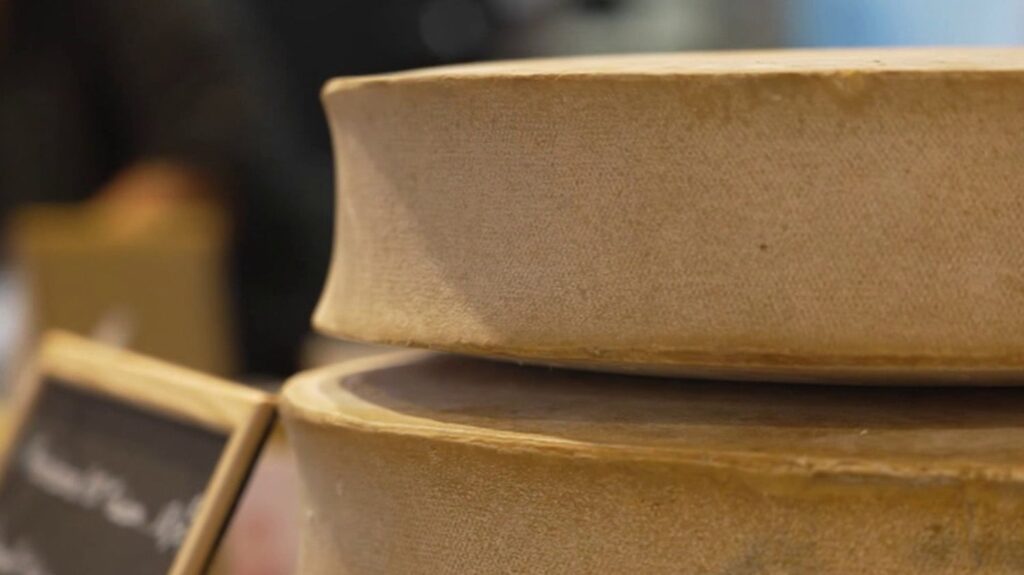Published
Updated
Reading time: 2min – Video: 3min
3 minutes
The protected or PDO designation is a label that meets strict specifications, a guarantee of know-how and quality. But in Haute-Savoie, abundance cheese, produced since the 12th century, is faced with a challenge: the lack of grass in the mountain pastures.
This text corresponds to part of the transcription of the report above. Click on the video to watch it in its entirety.
Abundance is a cheese particularly appreciated by the French. His secret: cows that feed on fresh grass in the middle of summer. But with the intensifying heat waves, it becomes rarer, more yellow. And the quality of the pasture is felt tasting: “There is a clear difference”entrusts a regular, for which a cheese produced with the milk of cows nourished with good grass “is more fruity, more tasty”.
Producers should not disappoint their customers, but also comply with the specifications of the Protected Origin (AOP). François Bouvier, managing director of the cheese and peasant company, therefore monitors her cheese like milk on fire. Even with the naked eye, he knows how to spot the differences in the color of the cheese, white when it is produced in winter or in too hot and dry summers: “The taste, aromatically, is less rich, we feel taste poverty”.
During droughts, part of the fresh grass must be replaced by hay. For François Bouvier, cheeses no longer have the same characteristics. “In abundance, we still try to remain quite homogeneous, flat, linear. If we can, we will ring the cheeses. We will hear that there are a few air bubbles in it. This is not necessarily what we are looking for to have optimal quality”he explains.
So how can you adapt to the heat waves linked to climate change? Thierry Curdy has no choice. The dairy farmer must go up to the pasture a month earlier and above all go always further and higher, to find a quality meadow, in an area formerly prohibited by the ancients. Because the search for fresh herbs at more than 1,000 meters above sea level can quickly prove to be dangerous. “We already have, in the past, given cows to slide”Make sure Thierry Curdy.
At such an altitude, it is impossible to return to the stable for drafts. The breeder had to invest in a mobile system so as not to tire the animals too much. “We are traveling people. We follow the grass, especially. So, it is not great comfort, but we do with the means on board”he confides.
Thierry Curdy knows that he will have to adapt constantly to global warming, to protect his AOP label. Three years ago, the sector had to request a softening to keep its name in the face of an intense drought.

/2025/07/31/video-5-688b7c669b50b692966093.jpg)

